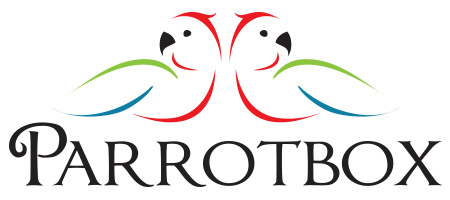Like cats and dogs, birds also require regular veterinary check-ups. It is important for birds to have regular check-ups as they exhibit very subtle symptoms of illness.
Avian veterinarians specialise in the care of birds. A bird’s anatomy is very different to that of a cat or dog so it is important to take your bird to someone who specialises in the care of companion birds.
Avian vets who specialise in companion birds perform tasks such as basic examinations, diagnosing of illnesses, blood work, making recommendations in regards to dietary requirements, prescription of medication, microchipping, worming and performing surgeries.
A typical examination with an avian veterinarian may include:
- A physical examination including:
- Weighing your bird
- Checking of the eyes, nose, mouth and ears for discharge, swelling or discoloration
- Feeling the crop
- Use of a stethoscope to listen to the heart and respiratory tract
- Checking of the vent for growths, bleeding, swelling or retained faecal material
- Inspection of the skin and feathers
- Inspection of the feet and toes
- Assessment of neurological function
- Diagnostic testing which may include:
- Examination of your bird’s faeces under a microscope to check for parasites, yeast or abnormal bacteria
- Blood testing to check for certain diseases, parasites or imbalances in biochemical functions
- Cytology – swabs may be taken from the bird’s cloaca (rear end), crop (a compartment of muscle tissue that birds use to store and soften their food before digestion) or choana (the slot in the roof of a bird’s mouth) to check for an overgrowth of bacteria or yeast
- Psittacosis testing – Psittacosis is a type of lung infection caused by the bacterium Chlamydia psittaci. Psittacosis is typically carried by birds of the parrot family. Humans can catch the disease from infected birds by inhaling the bacteria from dried secretions and droppings or from the shed feathers of an infected bird.
- Tests for other specific infections
- Radiology – x-rays may be required to check for fractures, the presence of foreign bodies or soft tissue masses such as tumors.
- Discussion about diet
- What your bird eats
- How often your bird eats
- Recommendations for ideal nutrition will be discussed
- Recommendations may also be made in regards to vitamin supplementation
- Recommendations for future follow up
A good place to start to locate an avian veterinarian close to you is your local Yellow Pages or Google. For those of us who reside in Australia and New Zealand, the Association of Avian Veterinarians Australasian Committee (AAVAC Ltd.) website offers a handy ‘Find Your Local Avian Veterinarian’ finder: http://www.aavac.com.au/find_an_avian_veterinarian.html.
